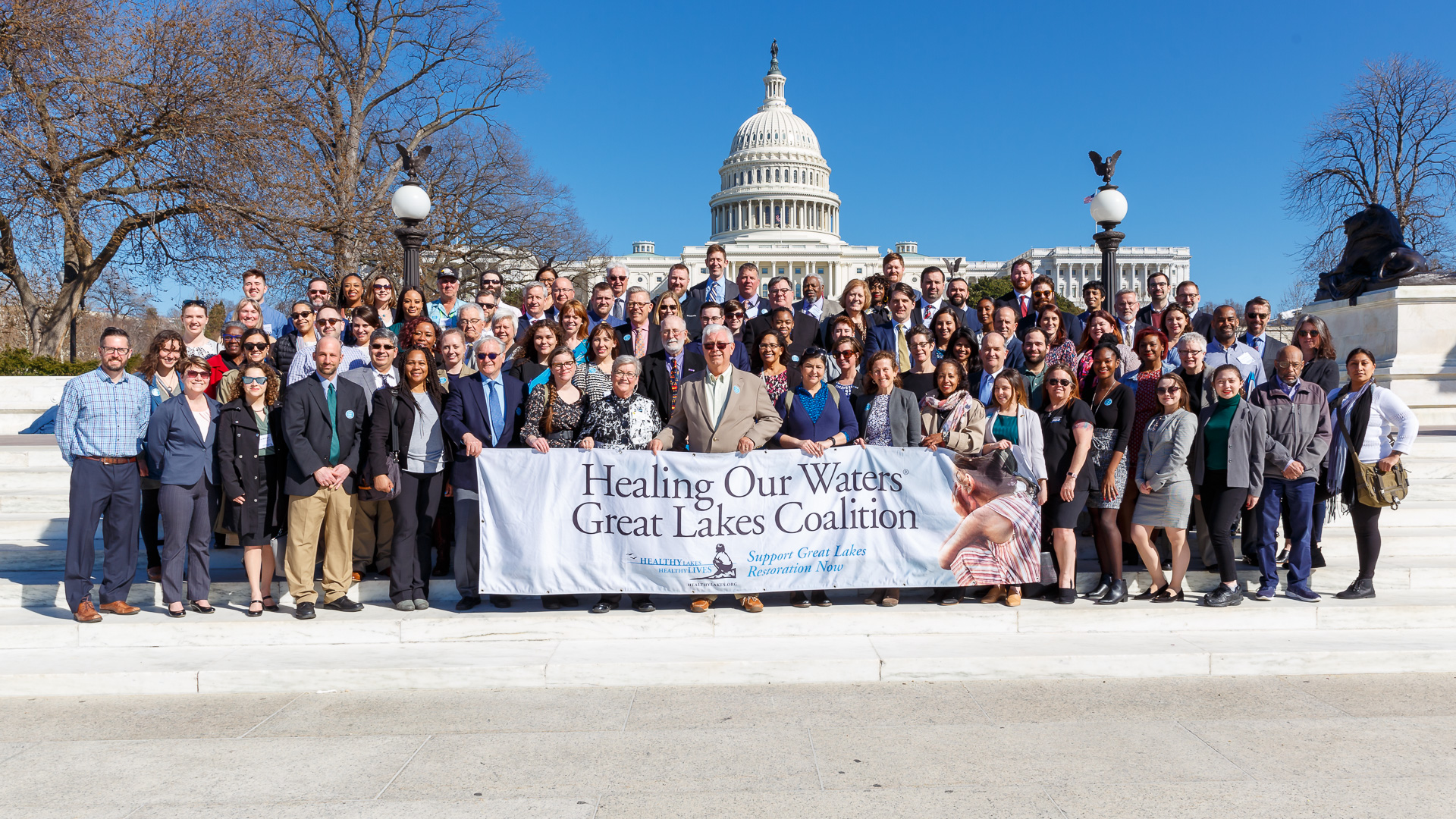
Before we all entered this strange new phase of life in order to help flatten the curve of the COVID-19 health crisis, I led a group of Minnesotans to Washington, D.C. for Great Lakes Day. We were there to meet with our elected officials to talk about why we need to do everything we can to protect the Great Lakes. We were joined by nearly 100 other advocates from around the Great Lakes region (Wisconsin, Michigan, Illinois, Indiana, Ohio, Pennsylvania, and New York) who were there to meet with their Members of Congress.
Why were we in DC? Because we need to stand up for the Great Lakes. They contain 21% of the Earth’s available fresh water. They are the drinking water source for more than 40 million people and tourism to the Lakes brings in more than 16 billion dollars each year to local economies. They are also a place for people to gather and have fun. For so many of us, they contain memories of great times.
For more than a century we treated our lakes as though they were our sewers and our industrial waste disposal sites and didn’t always want to face the consequences of these choices. If these are truly the Great Lakes, we need to do better.
We took a fantastic step in that direction in 2010 when the Great Lakes Restoration Initiative (GLRI) was signed into law by President Obama after campaigns led by Clean Water Action, our allies, and members. Since then, we have secured more than 3 billion dollars to restore and protect these treasured lakes for future generations. It has taken a while, but we have finally started to address the many problems that are plaguing the lakes: agricultural pollution, sewer overflows, leaking septic tanks, habitat destruction, and the spread of invasive species.
However, much more is needed to reach our goals. We were in DC to talk about and support the GLRI Act of 2019 and advocated for significantly increasing federal funding for clean water and safe drinking water programs. The GLRI Act would provide stability for Great Lakes funding for at least five years, increasing the annual funding by $25 million per year until it reaches $475 million annually. The GLRI Act will provide secure and stable funding and will encourage more state and local governments, as well as private businesses, to invest in protection and restoration across the Great Lakes basin.
Right now, Congress is rightly focused on responding to this unprecedented health crisis. We are supporting efforts to make sure all people get the resources they need first. America will recover from this, but it’s going to take a team effort – and we’re right there with you and everyone else.
Eventually, Congress will turn its attention back to “regular” business and that’s what we need to get ready for. Congress only acts on these issues like protecting the Great Lakes when they hear from constituents, so we need to make our voices heard again when the time comes.
It is going to take many more years to get to the point when all the Great Lakes are once again swimmable, fishable, and safe for all communities to get clean, affordable drinking water. But we’ll get there – with your support.


